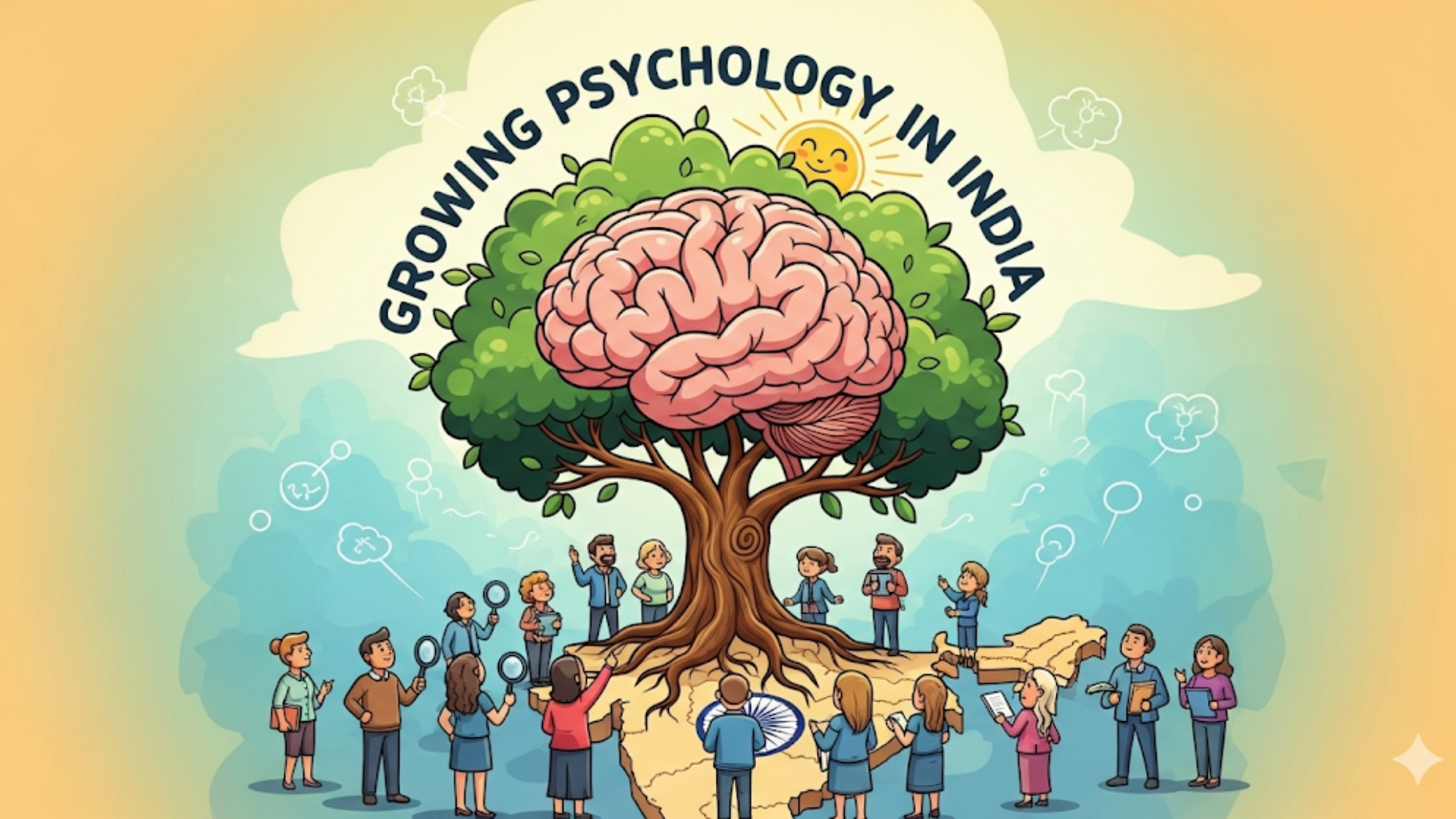Mental well-being has become a serious concern in India, with WHO reports showing its growing impact on people and society. Earlier, psychology was surrounded by stigma, but today it is seen as an important field that shapes education, healthcare, and even workplace practices. Over the last twenty years, India has gone through a cultural change, with research showing that more people are open to therapy and counseling. This shift has also made students curious about what are subjects in psychology and how the psychology syllabus is designed. Supported by policy initiatives, psychology in India is growing faster than ever.
Why Psychology Matters
Scope of Psychology
To put it simply, psychology studies the mind and its functions, especially those affecting behavior in a given context. Some will say it is all about mental disorders and dysfunction. But otherwise, it considers how people think, feel, and behave in everyday life. Now, invariably some students will ask, "What are the subjects of psychology?" These include such areas as memory, learning, social behavior, child development, and personality. Because of this extensive array, psychology is a very practical and interesting academic field to delve into.
Psychology in the Interpersonal World
Psychology assists us in dealing with much larger human problems in society. It teaches how to cope with stress, how to foster interpersonal relationships, and how to develop oneself. It also assists in education, law, and management, which makes it useful for interdependent individuals and communities.
Changed Perception in India
In India, the importance of psychology is growing as people are becoming open to therapy and counseling. In this present-day time, increasing cases of stress, depression, and anxiety indicate the clear demand for professional help. Psychology equips one with the right approach to tackling these issues in a healthy way.
Current Growth of Psychology in India
1.Academic Growth:
Interest in psychology as a subject has grown almost exponentially over the last few years. Many students are enrolling in colleges to study psychology subjects in college, covering areas like counseling, research methods, and child development. Students who take BA Psychology subjects learn about human behavior, research methodology, and counseling skills, among other things, all of which prepare them for a whole array of career possibilities.
2.Professional Demand:
There has never been a high demand for trained psychologists. Now, they work in schools, hospitals, and even corporate offices and NGOs. With increased awareness, more companies are realizing the need for mental health specialists who can assist students, workforces, and communities.
3.Cultural Shift:
Therapy was avoided due to stigma back then. Now, however, more Indians are openly seeking help. Social media campaigns for mental health awareness and celebrities sharing their experiences have given a rethink to many in seeking support.
4.Digital Psychology:
Technology has definitely transformed therapy by making it accessible. Tele-counselling platforms and mental health apps work on connecting people with professionals sitting tight in their homes. Usually, these digital boxes pack in resource tools, self
Drivers of Growth
1.Higher Education Opportunities:
Psychology is increasingly being preferred as a career. Undergraduate programs are most preferred among students, with BA Psychology subjects including developmental psychology, research methodology, and counseling as basic learning subjects. Such core psychology course subjects allow a student to gain knowledge and skills to get a good foothold for future career growth. Psychology has been declared as one of the key areas of focus by the UGC framework for higher education as per the UGC curriculum framework.
2.Awareness and Media:
Psychoeducation programs, campaigns regarding mental illness awareness, TV programs, and social media conversations have also reduced stigma. People now also increasingly talk about therapy and caring for oneself, which has led some to access professional services.
3.Corporate Demand:
Offices are paying attention to employee well-being. Companies are hiring psychologists for wellness programs, stress management workshops, and psychotherapy to support their employees. As a report by The Times of India mentioned, Indian companies increasingly invest in offering mental health support to workers.
4.Impact of Pandemic:
COVID-19 played a huge part in increasing awareness regarding mental health. As a result of lockdowns and stress, individuals' need for counselors and therapists increased multi-fold, putting psychology into the mainstream spotlight.
Challenges and Limitations
1.Lack of Awareness
Even though psychology is growing in India, there are still many challenges. One major issue is awareness. Many people, especially in smaller towns, are not clear about what are the subject in psychology or how this field can help them.
2.Shortage of Professionals
There is also a shortage of trained professionals. Compared to global standards, India has far fewer psychologists, which makes access difficult for a large part of the population.
3.Stigma in Society
Stigma is also a huge barrier. Mental illness is something to be hidden even in most households, which prevents people from getting therapy or counseling.
4.Cost and Accessibility
Cost and accessibility also play a part. Good services are mostly available within cities and are also expensive, thus leaving behind low-income groups as well as rural communities. People in these areas often have very little exposure to psychology subjects taught in colleges, which adds to the lack of understanding.
The Future of Psychology in India
Future prospects of psychology in India look good with several new avenues ahead. Research into mental health is being expanded, and psychotherapeutic interventions with AI and digital media are providing expanded access to professional help with a higher degree of tailoring.
Educational systems are also beginning to cover mental health as part of their syllabi so that students begin learning about issues of psychology early enough. Even at a policy level also, initiatives such as the National Mental Health Programme
reveal the government’s intentions to enhance mental health services throughout the nation.
As India enters a new era is a revolution being led by its young people. Millennials and people who identify as part of Gen Z are more open to therapy, counseling, and emotional health than their elders were, bringing into common vernacular discussions about mental health.
As knowledge increases, technology becomes more advanced, and policy support strengthens, psychology is destined to be a part of India’s health as much as its social structures.

